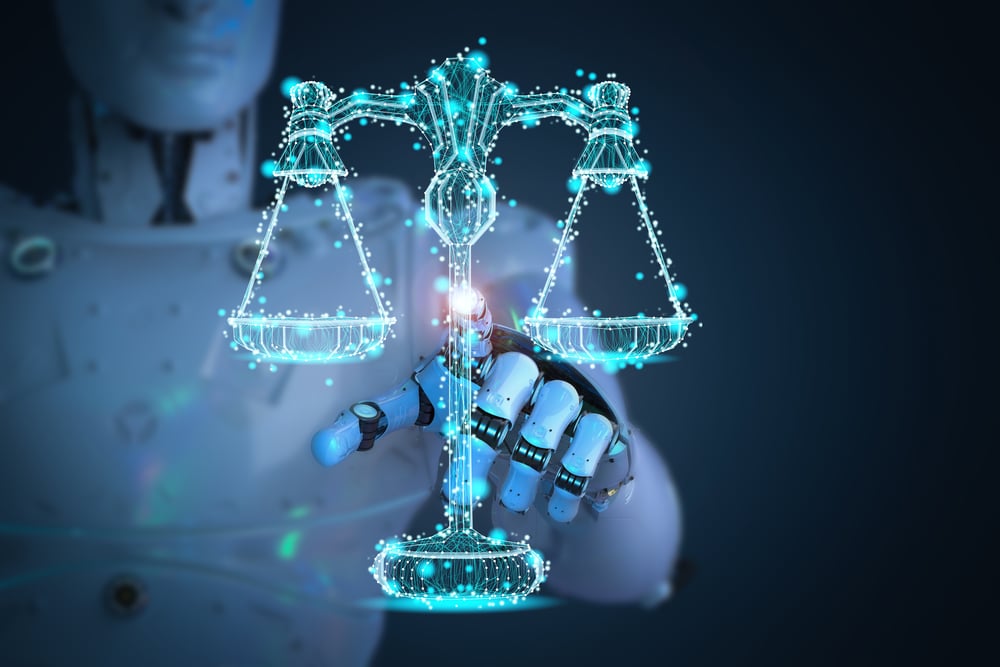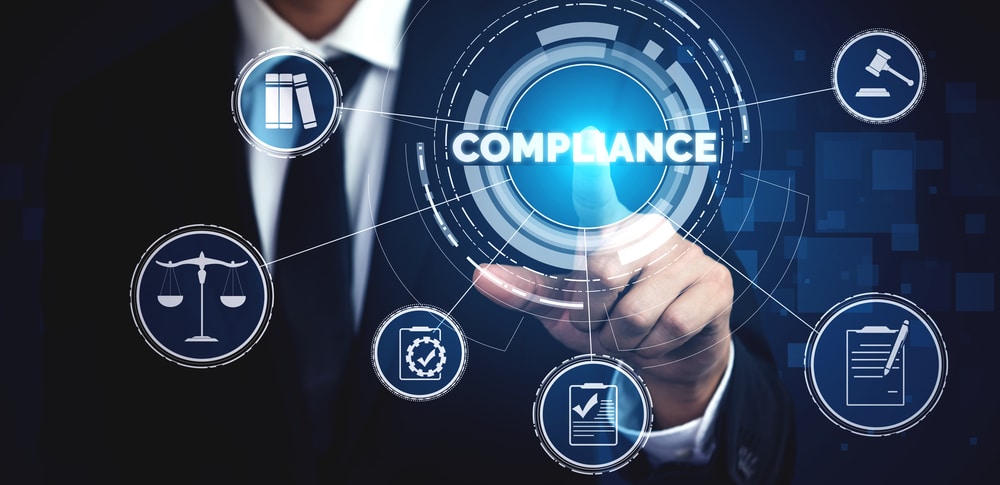
NIS2 could prevent cybersecurity incidents but many businesses aren't ready
The EU's latest Network and Information Security Directive (NIS2) comes into effect on October 18, but new research finds that although nearly 80 percent of businesses are confident in their ability to eventually comply with NIS2 guidelines, up to two-thirds say they will miss this imminent deadline.
The survey from Veeam Software, of over 500 IT decision-makers from Belgium, France, Germany, the Netherlands and the UK, shows 90 percent of respondents reporting at least one security incident that the NIS2 directive could have prevented in the past 12 months.

Harnessing generative AI to create a new breed of supercharged lawyers and law firms
Traditionally the legal sector has lagged behind other industries when it comes to embracing new technologies. However, generative AI is proving to be the exception to the rule. Its potential to transform the profession, driving lawyers and firms to unlock new levels of productivity and efficiency, is too great to be ignored.
Growing numbers of law firms are putting their money where their mouths are, with global spending on legal AI software tools at already over $1 billion and projected to increase by almost 20 percent (CAGR) every year across the rest of the decade, reaching an estimated $37bn by the end of 2024. There’s a huge societal and industry shift underway; lawyers and law firms must act now, or risk being left behind.

How AI will shape the future of the legal industry
The Department for Science, Innovation and Technology (DSIT) announced a £6.4 million grant for small and medium-sized enterprises (SMEs) to invest in AI-technology skills-based training. This development is the latest in a string of AI funding initiatives across the UK corporate sector, indicating that 2024 is the year emerging technologies will revolutionize the workplace in all aspects.
AI technology is transforming business functions across industries. However, the legal sector, in particular, has demonstrated tremendous progress. Often portrayed as laggards when it comes to embracing innovation, legal’s cautious, conservative approach to tech adoption has become a thing of the past in the age of AI. A recent survey from the Legal Services Board (LSB) discusses how over 95 percent of legal businesses found that implementing new technologies has made them more responsive to clients’ needs. Moreover, 60 percent of surveyed legal businesses found their clients expect them to power their legal services through tech innovation.

How AI is set to transform the legal sector [Q&A]
The use of generative AI is becoming common across many industries, but while it undoubtedly offers benefits it can lead to problems too.
Legal firms in particular can fall foul of poor results, one firm was fined $5,000 after a court found that one of its lawyers had used ChatGPT to write a court brief which included false citations.

The future of legal roles in an AI-driven world
The advent of artificial intelligence (AI) and large language models (LLMs) marks a significant turning point for the legal sector. Recent studies suggest a dramatic change is on the horizon, with up to 44 percent of tasks in law firms potentially being automated by AI. This impending transformation necessitates a re-evaluation of legal roles, requiring professionals to adapt and collaborate with AI while also preparing for the emergence of new positions.
AI promises to greatly enhance the efficiency and effectiveness of legal services, from streamlining the creation of legal documents, contracts, and agreements to automating repetitive tasks, to ensure accuracy and uniformity. AI's capability extends beyond mere data extraction; it can rapidly summarize complex documents like depositions and complaints and transform text into actionable insights. This will empower legal professionals to better understand and manage legal obligations, which will significantly enhance client services.

How AI can help app developers keep up with changing regulations [Q&A]
A changing regulatory landscape can prove difficult for app developers as they need to make sure they remain compliant and keep up with evolving rule sets.
We spoke to Pedro Rodriguez, head of engineering at AI-powered compliance intelligence platform Checks, to find out how AI can help mobile app developers to handle data responsibly and keep up with ever-changing global regulations,

New non-profit seeks to get justice for cybercrime victims
Internet and cyber crimes cause financial loss and have emotional impact for people around the world. Now though a new non-profit organization has been formed to pursue justice for victims of these crimes.
Intelligence for Good aims to make the internet a safer place for everyone, and to ensure that cybercriminals are not only brought to justice but fear the consequences of scamming innocent people.

Providing the legal sector with the deep visibility, security, and data monitoring they need to thrive
Cybercriminals frequently target the legal sector due to its extensive holdings of highly confidential, commercially sensitive, and often personal information. As a sector built on trust and reputation, this growing threat continues to disrupt and create havoc in business operations, underscoring the necessity for a deeper understanding of cyber threats and stronger cyber security measures within the legal industry.
A recent report from the National Cyber Security Centre (NCSC), published in early 2023, revealed that the UK has over 32,900 legal enterprises, encompassing barristers, solicitors, and other legal service providers. With an estimated total revenue of £43.9 billion and more than 320,000 people employed in the legal sector, it represents a large and lucrative target for cybercriminals.

How the EU's new AI Act will affect businesses [Q&A]
The European Union first proposed introducing a regulatory framework for AI back in 2021, the wheels of politics inevitably grind slowly, however, and it's still working on legislation to bolster regulations on the development and use of artificial intelligence.
The proposed Artificial Intelligence Act has sparked a good deal of debate in the industry with many worried that it could harm business competitiveness.

The race to regulate AI: The next frontier for law and society
Artificial intelligence (AI) is set to be the next major technological advancement to dramatically impact modern society. From transforming the way we work, to increasing efficiency in outdated systems, the changes promised by AI have the potential to be utterly transformational. While this brings a huge range of opportunities, there are also some enormous challenges to overcome if humanity is to strike an effective balance between progress and risk.
History shows that society and the law do not always handle rapid innovation well. Take technologies such as the steam engine and automated loom, for instance, where progress was met with varying degrees of resistance and fear before the benefits were fully realized. In the case of AI, harnessing its potential while safeguarding against misuse means legislators must take a measured, risk-based approach to regulation that embraces change alongside effective safeguards.

Over half of Brits are okay with government breaking cybersecurity law
Over half of the UK population (53 percent) would be supportive of the UK government and its allies breaking international cybersecurity law.
A new survey by Censuswide, on behalf of International Cyber Expo, also shows 45 percent have admitted they would be supportive of, or engage in online cybercriminal activity themselves, in the right circumstances.

Americans want data privacy and they worry about AI
A new survey of over 1,000 Americans reveals that people are deeply concerned about their personal data, believe their data is priceless, want a national privacy law, and are pessimistic about the rise of AI and personal data.
The study for PrivacyHawk, conducted by Propeller Research, shows 45 percent are very or extremely concerned about their personal data being exploited, breached, or exposed. Over 94 percent are generally concerned. Only 5.7 percent of the US population is not concerned at all about their personal data risk.

Law firms are struggling with their cybersecurity practices
Law firms store some of the most sensitive information available regarding material business transactions, intellectual property and personal data.
But a new study from the International Legal Technology Association (ILTA) and Conversant Group, reveals a disconnect between legal firms' IT and best practice cybersecurity.

The future of intellectual property
Over recent years, various emerging technologies have presented complex issues for intellectual property (IP) laws. The pace at which these technologies are advancing is only accelerating, and it seems fated that many recent innovations are on the verge of significantly impacting our lives.
The ramifications for IP could be substantial, and already, discussions are taking place regarding how novel technologies will influence the IP landscape. In some instances, the emergence of new media necessitates a response from IP laws to ascertain which existing rules remain relevant and ensure that current assets continue to receive effective protection. In other cases, the evolving ways assets are utilized demonstrate that some IP regulations are no longer appropriate, indicating a need for reform.

Automation: How law firms can reach new heights in recruitment and profitability
The legal profession is filled with a number of repeatable tasks that are rife for automation, such as estate planning, bankruptcy filing, IP filings, real estate transactions, and M&A filings. In fact, it’s estimated that nearly a quarter (23 percent) of a lawyer’s daily work could be automated.
The amount of time involved in doing manual tasks can put an immense amount of pressure on legal professionals. In a Gartner survey, 68 percent of corporate lawyers said they struggled to manage their workloads. And over half reported some degree of exhaustion.
